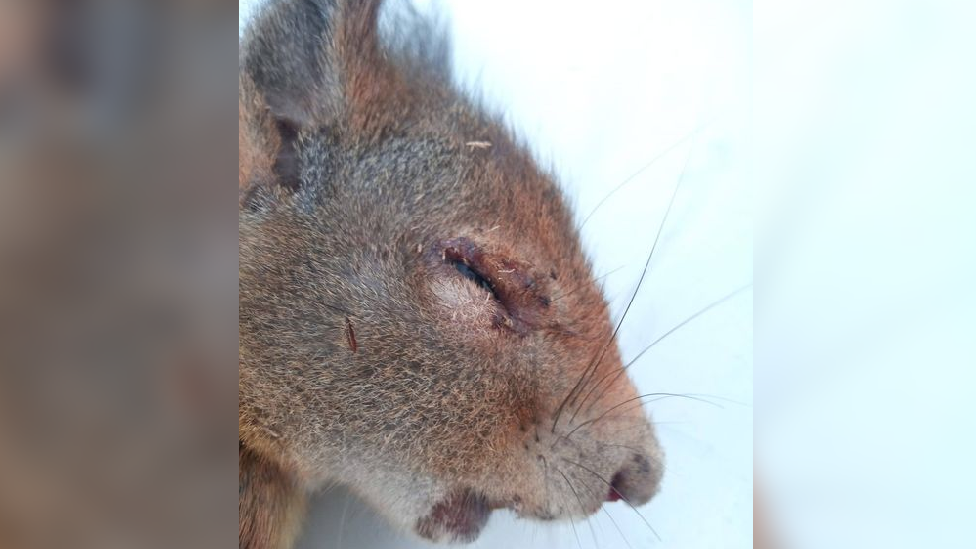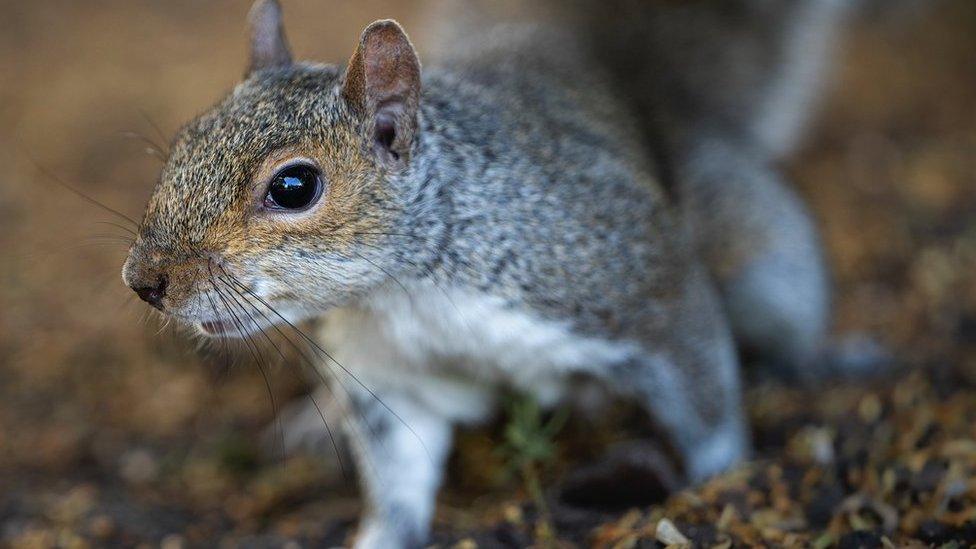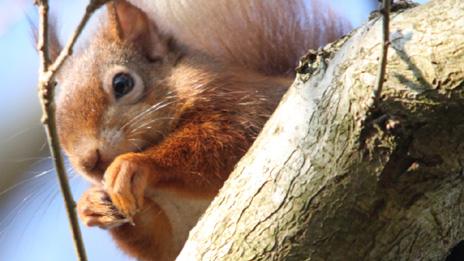Squirrelpox: Fatal case confirmed in north Wales
- Published

Squirrelpox is often spread by grey squirrels but only affects red squirrels
There are concerns around a new case of the squirrelpox virus, animal experts have said.
A young female red squirrel was found at Treborth botanic garden, in Bangor, on 27 November.
Tests confirmed it died from the virus. There is no known risk to humans.
Conservationists are appealing for people in north west Wales to look out for sick or dead red squirrels, so they can keep a track on whether the virus is spreading.
The virus is often spread by grey squirrels, but it affects only red squirrels, is highly infectious and usually fatal.
An outbreak of squirrelpox in Gwynedd in 2020 is thought to have killed between 70-80% of red squirrels in the Bangor area.
Red squirrels were once common around the UK, but have become rare in the last 200 years.
Worries virus could spread
Grey squirrels were introduced in the 1800s from north America, and became the more dominant species in most places.
Experts are worried that the virus could now spread from Bangor to Anglesey, which has a large population of red squirrels, and no grey squirrels.

The squirrel was killed by the virus, which causes skin ulcers, and scabs, as well as swelling and discharge near the eyes, mouth, feet, and genitalia
Dr Craig Shuttleworth, from the Red Squirrels Trust Wales said: "So far, we've only seen one case in the last few days.
"The population of red squirrels around Bangor was just starting to recover from the outbreak of squirrelpox in 2020, so it's a real blow even to find one new case."
He said although Anglesey is one of the few places in the UK where there are no grey squirrels, it is important to stay vigilant as they have been known to try to cross the bridges onto the island.
The virus causes skin ulcers and scabs, as well as swelling and discharge near the eyes, mouth, feet, and genitalia, in red squirrels.
Squirrels that fall victim to the disease often become increasingly lethargic as it progresses.
Related topics
- Published3 December 2022

- Published13 August 2019

- Published16 December 2017

- Published25 November 2013

- Published16 April 2012
